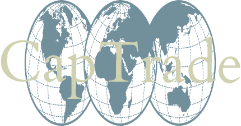
BLOG
Using the GTAP Model to Simulate Second Quarter Real GDP
According to the advance GDP release (4/29/20), the U.S. economy contracted by 4.8 percent during the first quarter of 2020. Though not as bad as the 8.4 percent quarterly decline that occurred during the Great Recession, performance in the second quarter could be even worse.
China’s New Dispute at the WTO Against US Tariffs
As promised, this past Sunday Sept 1st the U.S. began implementing 15 percent tariffs on a variety of goods. On Monday, a spokesperson for the Chinese Ministry of Commerce announced that China filed a complaint against the US under the World Trade Organization (WTO) dispute settlement system
Which Costs More: Cloth or Disposable Diapers?
I have just welcomed my third child into the world. Her small presence has brought many large changes to our routines, including, for the first time, the use of cloth rather than disposable diapers. This change to cloth started me thinking: Was there a way to quantify which is better, cloth or disposable diapers?
CapTrade Individuals Sweep Top Two Spots in Global Ranking of Trade Consultants
Charles (Chuck) Anderson and Daniel Klett were named the number 1 and number 2 “Global Elite Thought Leaders,” respectively, in a recent ranking published by Who’s Who Legal (“WWL”), Trade and Customs, Economists and Antidumping Consultants.
China Targets Key U.S. Industries in Retaliation to Sections 232 & 301
Escalating trade tensions between the United States and China have resulted in multiple actions that threaten to significantly alter trade flows between the world’s two largest national economies
Canada Requests Consultations with the U.S. at the WTO
Within these allegations, Canada claims that the U.S. procedures broke the WTO’s Anti-Dumping Agreement, the Agreement on Subsidies and Countervailing Measures, the General Agreement on Tariffs and Trade, as well as the Understanding on Rules and Procedures Governing the Settlement of Disputes.
Three Reasons Why the U.S. Should Care About Brexit
Although Europe remains the epicenter of Brexit’s economic and political instability, the United States is not insulated from the shocks felt across the water. We summarized some of the anticipated effects of Brexit on the U.S. economy and trade outlook.
Reviewing the 2015 Trade Numbers
Full-year 2015 trade data from the United States International Trade Commission are now available. To celebrate, we review some of the most important big-picture developments in U.S. trade from the previous year.
U.S. Trade Picture in 2015–Improvements in Petroleum Mask Weakness Elsewhere
Growing U.S. oil and gas production and lower oil prices have reshaped U.S. petroleum trade. Although the United States still runs a deficit, the average monthly trade deficit through August 2015 is only $7.6 billion, compared to $35.1 billion through August 2008. This improvement is largely driven by imports.
The Trans-Pacific Partnership: Many Hurdles Remain
In addition to the participation of two of the globe’s three largest economies, the United States and Japan, the pact could eventually include South Korea, Taiwan, Thailand, and the Philippines, though these countries are not directly involved in the current negotiations. China, the elephant in the room for any Pacific trade pact, is not a party to the TPP talks and has only hinted interest, according to the Obama administration.
Yuan Shock–The Export Angle
There is a tendency to view China’s 1.9 percent devaluation of the Yuan on August 11 through the lens of the U.S. dollar. After all, the Yuan has been fixed or closely linked to the greenback for decades, and Washington has been among the most vocal critics of China’s currency policy. However, currency and trade data suggest that China’s devaluation has more to do with the other currencies.
IMF Lowers WEO Projections
The International Monetary Fund continues to revise its global growth projections downward but it is having trouble keeping up with a steady stream of bad news. In October, the Fund released its latest edition of the World Economic Outlook, a biannual survey of the global economy. In this installment, the authors describe a persistently “uneven global recovery.”












